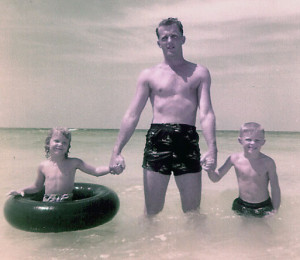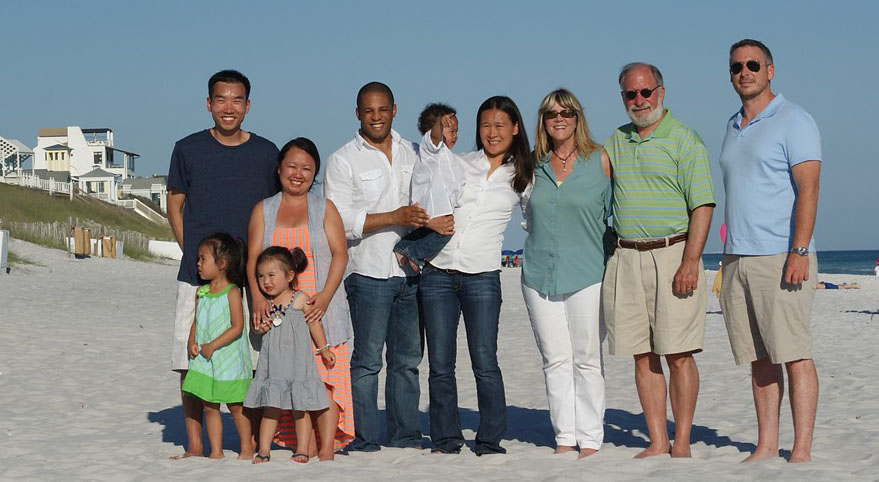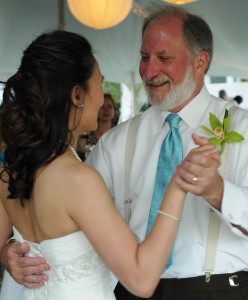
Every May and June, millions of people are faced with yet another intrusion into our personal lives by the marketing gurus at Hallmark and beyond—those twin pinnacles of human commemoration—Mother’s Day and Father’s Day. How did it all begin?
In 1914, President Woodrow Wilson approved a resolution making the second Sunday in May officially “Mother’s Day.” Dads didn’t get their day until 1972, when President Richard Nixon signed a proclamation making “Father’s Day” a federal holiday. It’s estimated that Americans spend over $1 million a year on Father’s Day gifts.
One has only to cruise down the Facebook feed on these holidays each year for an outpouring of emotions—both positive and negative—about mothers and fathers. What if you were abused by one or both parents? What if they just weren’t there for you—physically or emotionally? How do you commemorate their “special day” each year? And what if you have regrets (and who doesn’t?) about the ways you have failed your own children? Does the national holiday in honor of you as a parent make you feel better or worse?

I thought about all of these things a good bit this past weekend, and I picked back up Brene Brown‘s book, Daring Greatly, and read her chapter on “Wholehearted Parenting.” (You can read my previous posts about Brown here: “Minding the Gap”, “Living Inside Our Stories,” “Daring Greatly,” “Surviving the Arena,” “Shame on You,” and “Picture Memories and Foreboding Joy.”)
If you don’t have the book yet, I’ll recommend it again. And again I will thank my Goddaughter, Katherine Thames, and her husband, Hardy, for recommending it to me. Hardy teaches history and economics at Gulfport (Mississippi) High School, where he challenges his students in a way that certainly inspires them to dare greatly. Katherine is a nurse. They have three wonderful children, ages 9, 11 and 14. I’ve never seen two parents more engaged with their children, and it shows in the joy that radiates from their family.
At the end of Brown’s chapter on parenting, she shares what she calls, “The Wholehearted Parenting Manifesto.” Click on link to read the manifesto. It’s short and so worth the read. I’ll share a few sentences here:
Above all else, I want you to know that you are loved and lovable. You will learn this from my words and actions–the lessons on love are in how I treat you and how I treat myself.
I want you to engage with the world from a place of worthiness.
We will practice courage in our family by showing up, letting ourselves be seen, and honoring vulnerability.
I want you to know joy, so together we will practice gratitude. We will laugh and sing and dance and create. We will always have permission to be ourselves with each other. No matter what, you will always belong here.
 Maybe it’s never too late to become a wholehearted parent, whether or not we received this gift from our own mothers and fathers. Maybe we can still give these gifts to our children and grandchildren–the gifts of compassion, joy, worthiness, gratitude, and most importantly, belonging. At our daughter’s wedding reception on May 7, 2011, I asked a dear friend, Ashley Newton, to sing a song to Beth from me. The song was, “I Hope You Dance.” This picture of Beth dancing with her father is my favorite memory of that special event in our family’s life.
Maybe it’s never too late to become a wholehearted parent, whether or not we received this gift from our own mothers and fathers. Maybe we can still give these gifts to our children and grandchildren–the gifts of compassion, joy, worthiness, gratitude, and most importantly, belonging. At our daughter’s wedding reception on May 7, 2011, I asked a dear friend, Ashley Newton, to sing a song to Beth from me. The song was, “I Hope You Dance.” This picture of Beth dancing with her father is my favorite memory of that special event in our family’s life.